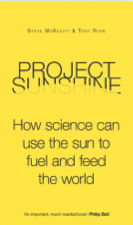SATURDAY, 11 OCTOBER 2014
In Experiment Eleven, Peter Pringle tells the incredible story of Dr Albert Schatz and his discovery of streptomycin, the antibiotic that would be the first cure for tuberculosis. He tells us how the then PhD student Schatz, working in the lab of Professor Selman Waksman, came across a microbial culture that produced the invaluable drug. This discovery led to a storm of public praise for—well, for Waksman. Painting a picture of an egocentric believer in hierarchy, Pringle describes how Waksman used his seniority to nudge Schatz out of the picture, taking all the credit for himself and eventually winning the Nobel Prize for ‘his’ discovery. The story is told in a fast and thrilling way, making it difficult for the reader to put the book aside. Occasionally he gets lost in side stories and, ironically, Pringle also tends to make the same mistake as Waksman: he attributes the credit to one person alone, in this case to Schatz, almost denying Waksman any part in the discovery. While this makes the story human and relatable, his sarcastic tone towards Waksman casts a shadow on Pringle’s objectivity as an author. Dedicated to “the researchers in science who did the hard work, and never reaped the glory”, Experiment Eleven addresses important questions about ethics in science and who should be given credit for discoveries. It is a fantastic read which will hopefully help straighten the records about the discovery of the cure for tuberculosis Jannis MeentsWEEDS: The Story of Outlaw Plants - Richard Mabey
Richard Mabey’s ‘Weeds: The Story of Outlaw Plants’, released in 2010, is a brilliant book about the unwanted plants around us. It examines our relationship with ‘weeds’, past and present, with poetic whimsy; switching from anecdote to anecdote, scientific experiment to poetry, and adding botanical examples galore. Mabey is clearly passionate and well-versed in the subject and his argument for a more nuanced view on weeds is convincing. Each chapter is titled after a different plant, be it real or mythological, and each chapter explores weeds in a different way. For example, ‘Love-in-idleness’ explores weeds in literature whereas ‘Self Heal’ explores the cultural history of today’s weeds as medicine. Each challenges our modern-day perception of ‘weeds’ and confronts the reader to reconsider our attitude towards them, from the prickly burdock to the blistering giant hogweed. Whilst somewhat heavy at times, the book remains a testament to the lesser appreciated beauty of nature. Indeed, perhaps much of its sentiment is best summed up in the verse by Gerard Manly Hopkins, “What would the world be, once bereft/ Of wet and of wildness? Let them be left,/O let them be left, wildness and wet;/ Long live the weeds and the wilderness yet”. Nathan Smith
Project Sunshine - Steve McKevitt and Tony Ryan
The future of humans on Earth looks bleak; relentless population growth coupled
with an ever greater demand for water, food and electricity. Is it even possible to meet these demands? Project Sunshine addresses this question in a to-do list for the human race. Setting the stage with a thorough review of the food and energy requirements for the coming decades that leaves the reader with overwhelming anxiety for the future, McKevitt and Ryan systematically evaluate a range of potential technologies and solutions, including genetically modified crops, solar power, wind turbines and nuclear power. The technical writing style in these central chapters is at times dry and uninspiring. This, however, simply reflects the reality of scientific progress that is known all too well by most students in research. In this regard, it is refreshing to have an evaluation of scientific concepts and technologies that has not been glorified by popular media. As hinted in the title, McKevitt and Ryan’s solution is a globally-coordinated investment in photovoltaic energy, which holds the greatest potential for scalability and cost-effectiveness. Project Sunshine is a compelling read that hopes to inspire the reader to tackle the significant global issues that will soon affect our planet. Dhiren Mistry



